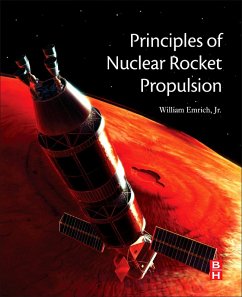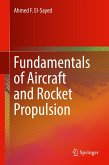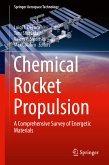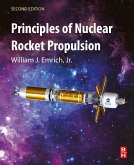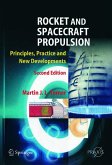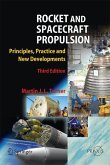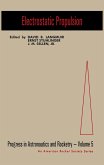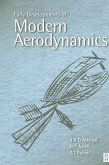Principles of Nuclear Rocket Propulsion provides an understanding of the physical principles underlying the design and operation of nuclear fission-based rocket engines. While there are numerous texts available describing rocket engine theory and nuclear reactor theory, this is the first book available describing the integration of the two subject areas. Most of the book's emphasis is primarily on nuclear thermal rocket engines, wherein the energy of a nuclear reactor is used to heat a propellant to high temperatures and then expel it through a nozzle to produce thrust. Other concepts are also touched upon such as a section devoted to the nuclear pulse rocket concept wherein the force of externally detonated nuclear explosions is used to accelerate a spacecraft.
Future crewed space missions beyond low earth orbit will almost certainly require propulsion systems with performance levels exceeding that of today's best chemical engines. A likely candidate for that propulsion system is the solid core Nuclear Thermal Rocket or NTR. Solid core NTR engines are expected to have performance levels which significantly exceed that achievable by any currently conceivable chemical engine. The challenge is in the engineering details of the design which includes not only the thermal, fluid, and mechanical aspects always present in chemical rocket engine development, but also nuclear interactions and some unique materials restrictions.
- Sorts and organizes information on various types of nuclear thermal rocket engines into a coherent curriculum
- Includes a number of example problems to illustrate the concepts being presented
- Features a companion site with interactive calculators demonstrating how variations in the constituent parameters affect the physical process being described
- Includes 3D figures that may be scaled and rotated to better visualize the nature of the object under study
Dieser Download kann aus rechtlichen Gründen nur mit Rechnungsadresse in A, B, BG, CY, CZ, D, DK, EW, E, FIN, F, GR, HR, H, IRL, I, LT, L, LR, M, NL, PL, P, R, S, SLO, SK ausgeliefert werden.

